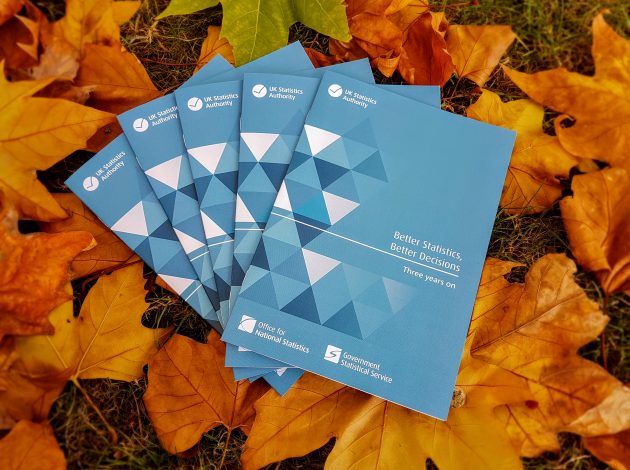Three years ago the UK Statistics Authority, the Office for National Statistics (ONS) and the Government Statistical Service embarked on a five year strategy: Better Statistics, Better Decisions. Here, John Pullinger reflects on the journey to-date.
The strategy set an expectation that by 2020 UK official statistics would be radically different, mobilising the power of data to help Britain make better decisions. It set out a call to action for each person working in the statistical system to think about their own role and ask: how can I be more helpful to those I serve; how can I demonstrate professionalism by delivering a high quality service that will be trusted; how can I innovate and make things better; how can I be more efficient in my use of resources, money and time; and how can I develop my capability and learn new things?
Demand for information
As I look back on what has been achieved I have seen colleagues across the board respond to the demand for information faster, in more fine grained forms and targeted on the issues at hand. I have seen many examples where the possibilities arising from previously unimaginable sources of data have been grasped. I have seen true commitment to our values of honesty, integrity, objectivity and impartiality – respecting the interests of those whose data are being utilised for public benefit and by never straying from description into advocacy.
The UK has many more important decisions to make. On EU exit and our place in the world, the macroeconomy and industrial strategy, population change and migration, health and security and many more. To inform those decisions clear insight is needed quickly, in fine grained forms and targeted on the issues at hand. There are many excellent examples where we are reaching the mark. We will design all our services to be helpful to government, business, communities and individuals when important choices and judgements are being made.
Data for public benefit
We have no axe to grind in any debate save that it is well informed. We cherish our values of honesty, integrity, objectivity and impartiality. By respecting the interests of those whose data we utilise for public benefit and by never straying from description into advocacy we earn our licence to operate. Outstanding communication of our findings and our ethos is essential if we are to ensure that good evidence is used in the service of democracy.
I am confident that the best is yet to come. As I have set out in ‘Better Statistics, Better Decisions – Three years on‘, over the next two years we are poised to deliver on our transformation and realise the possibilities we outlined three years ago.
John Pullinger, National Statistican
